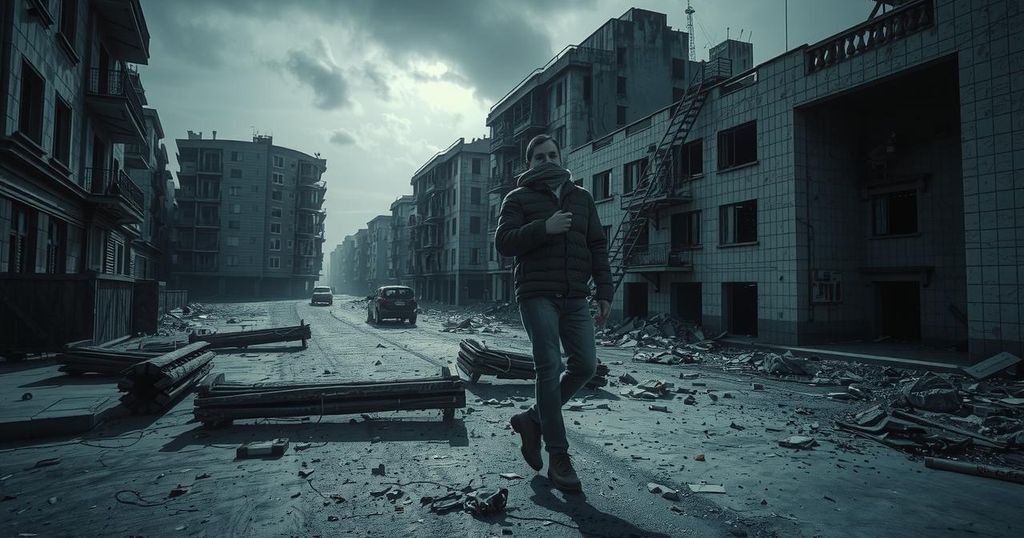World news
AFRICA, BELGIUM, CIVIL WAR, CONGO (KINSHASA), CORN, CORNEILLE NANGAA, DEMOCRACY, DEMOCRATIC REPUBLIC OF CONGO, DRC, EUROPE, FELIX TSHISEKEDI, GOMA, HUMANITARIAN, KINSHASA, KIVU, M23, MILITARY, NBC NEWS, NORTH AMERICA, RWANDA, SOUTH KIVU, TEXAS, TSHISEKEDI, U. S, UNITED NATIONS, UNITED STATES, WAR
Sofia Rodriguez
0 Comments
Escalating Conflict in DRC: M23 Rebel Group Threatens Regional Stability
The DRC is facing a dangerous escalation in conflict as the M23 rebel group claims control of Goma, leading to significant humanitarian crises with over 400,000 displacements. The Congolese government perceives this escalation as a declaration of war by Rwanda. China’s dominance in cobalt extraction highlights the global implications of the conflict, while Rwanda’s alleged support for M23 complicates the international response and challenges ongoing stability in the region.
The ongoing conflict in the Democratic Republic of Congo (DRC) has escalated dramatically with the M23 rebel group seizing control of Goma, a crucial eastern city. This surge in violence threatens to develop into a larger regional conflict given the DRC’s long history of turmoil. Millions of people are affected, as a recent United Nations report indicated over 400,000 displacements just last month. The Congolese government, under President Félix Tshisekedi, has termed this resurgence as a declaration of war by Rwanda.
M23, primarily composed of ethnic Tutsi fighters, claims to protect their community against perceived neglect and aggression from the DRC government. The origins of this insurgency are tied to the Rwandan genocide in 1994, resulting in many Tutsis fleeing to Eastern DRC. Previous peace efforts have failed, and M23’s renewed offensive coincides with accusations of Rwandan governmental support for the rebels.
China has significant interests in the DRC, holding ownership over 80% of the country’s cobalt output, which is critical for global technology and electric vehicle production. This mineral-rich region, plagued by instability, risks losing vital production capabilities if conflict escalates. The Chinese government has condemned the violence, expressing concern over its potential to escalate further.
Rwanda’s involvement in the DRC is contentious, with accusations that it offers military support to the M23 group. As international attention wanes and some aid continues to flow into Rwanda, the situation remains precarious. The West’s response has been tepid, leading to concerns regarding Rwanda’s role as a strategic partner amid ongoing humanitarian crises.
Given the M23’s recent gains and the reported conditions in Goma, the international community is urged to intensify its efforts to address the conflict before it spirals further out of control. With significant global implications, especially regarding the mineral supply chain, rapid intervention may be necessary to ensure stability in the region.
This situation highlights a disturbing continuation of a conflict that has claimed millions of lives and resulted in rampant displacement. The increasingly aggressive posture of the M23 group and the Congolese government’s mobilization strategy pose compelling concerns for both regional and global peace. A coordinated international response that prioritizes humanitarian needs and stability is crucial to mitigate a potential full-scale war in the DRC.
The Democratic Republic of Congo has a tumultuous history marked by conflict dating back to its independence from Belgium in 1960. The nation, rich in natural resources, including vital minerals for global electronics, remains locked in insurgency battles. The current resurgence of M23 is one of the most severe escalations in recent years, contributing to significant humanitarian crises as fighting has displaced hundreds of thousands. Understanding the roots of this conflict, coupled with international political dynamics, is essential to grasp the present situation and its implications.
In conclusion, the resurgence of the M23 rebel group in the DRC has exacerbated an already dire humanitarian situation that threatens regional stability. The complexities of the conflict, involving historical grievances and international influences, complicate efforts for peace. Without robust intervention from global powers, the DRC risks another cycle of violence that could have profound consequences for the region and beyond.
Original Source: www.nbcnews.com




Post Comment